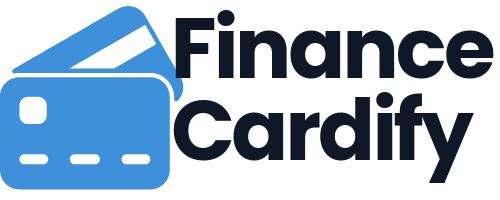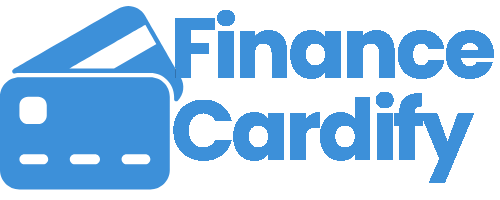The world of credit is no longer just about a piece of plastic. It’s an essential component of modern financial life, a powerful tool that, when used correctly, can unlock major life goals—from purchasing a home to starting a business. However, when mismanaged, it can become a heavy financial burden. This detailed guide explores the nuances of credit, moving past the basics of a credit card to provide a holistic, contemporary view of responsible financial management.
The Foundation: Understanding Credit and Your Score
Before diving into cards and loans, it’s crucial to grasp the bedrock of credit: your credit score and credit report. These two elements are your financial reputation, and lenders use them to determine your trustworthiness and the terms of your borrowing.
The Anatomy of a Credit Score
Your credit score—typically a three-digit number—is calculated based on the data in your credit report. While specific scoring models vary, the major factors that influence your score are universally consistent:
- Payment History (The Most Important Factor): This accounts for around 35% of your score. Paying bills on time, every time, is non-negotiable. Even a single late payment can significantly damage your score for years.
- Amounts Owed (Credit Utilization): This factor makes up about 30% of your score. It measures the amount of credit you’re using compared to your total available credit limit. Experts advise keeping your credit utilization ratio below 30%, but aiming for under 10% is considered optimal for the best scores.
- Length of Credit History: The longer your credit accounts have been open and in good standing, the better (about 15%). Avoid closing old, paid-off accounts, as this can shorten your average credit history.
- New Credit: Opening many new credit accounts in a short period can signal higher risk to lenders, accounting for around 10%. Apply for new credit only when you truly need it.
- Credit Mix: Having a healthy mix of different credit types (e.g., credit cards, installment loans like mortgages or auto loans) shows you can handle various forms of debt responsibly (about 10%).
Monitoring Your Financial Health
Regularly monitoring your credit report is a vital habit. Review it for errors, unauthorized accounts, or signs of identity theft. You are typically entitled to a free copy of your credit report from the major credit bureaus once a year. Understanding what’s in your report is the first step toward taking control of your financial future.
The Core Tool: Navigating Credit Cards
The credit card is the most common form of revolving credit and, arguably, the most versatile. Using it wisely builds a positive credit history; using it carelessly creates expensive debt.
Strategic Credit Card Usage
The golden rule of credit cards is simple: Never charge more than you can afford to pay off in full each month. By doing this, you leverage the card’s benefits—like purchase protection and rewards—while completely avoiding interest charges due to the grace period.
- Understand Your APR: The Annual Percentage Rate (APR) is the interest rate you’ll pay on balances carried over from month to month. If you pay your statement balance in full before the due date, you won’t be charged this interest on purchases. But for cash advances or if you carry a balance, the APR kicks in immediately and can be quite high.
- Avoid Minimum Payments: Paying only the minimum amount due is a recipe for long-term debt. The interest compounds, and a small balance can take years and hundreds or thousands of extra dollars in interest to pay off.
- Set Up Automatic Payments: Automating at least the minimum payment ensures you never incur a late fee or damage your payment history. Ideally, automate the full statement balance if your budget allows.
Choosing the Right Card
With a vast array of credit cards available, choosing the right one requires aligning it with your spending habits and financial goals.
| Card Type | Best For | Key Feature |
| Rewards Cards | High spenders who pay in full | Cash back, travel points, or miles on everyday purchases. |
| 0% APR Introductory Cards | Large planned purchases or debt consolidation | No interest on purchases or balance transfers for a promotional period (e.g., 12-21 months). Crucial: Must be paid off before the intro period ends. |
| Secured Credit Cards | Building credit from scratch or rebuilding bad credit | Requires a cash deposit as collateral, which acts as your credit limit. Excellent for establishing a payment history. |
| Low-Interest Cards | Users who occasionally carry a balance | Lower ongoing APR, minimizing the cost of interest compared to rewards cards. |
Beyond the Card: The Modern Credit Landscape
Credit today extends beyond traditional credit cards and loans. New financial tools offer different ways to borrow, each with its own risks and rewards.
Buy Now, Pay Later (BNPL) Services
BNPL services, such as those offered by companies like Affirm or Klarna, have surged in popularity, allowing consumers to split a purchase into several interest-free installments.
- Pros: Often interest-free, easy to use, and can help manage cash flow for one-off purchases.
- Cons: They can encourage overspending, and late payments often incur high fees or interest. Crucially, while some BNPL plans report to credit bureaus (helping your score), others do not. The lack of standardized reporting can make the full impact on your credit history ambiguous.
Personal Loans and Lines of Credit
For larger, structured borrowing needs, personal loans and lines of credit offer an alternative to credit cards.
- Personal Loan (Installment Credit): A lump sum of money is borrowed and repaid over a fixed term with a set interest rate. This is useful for large expenditures like debt consolidation, home renovations, or medical bills. Because the payment is fixed, it offers predictable budgeting.
- Personal Line of Credit (Revolving Credit): Similar to a credit card, you are approved for a maximum limit and can borrow as needed, only paying interest on the amount you use. They often come with a lower APR than credit cards, making them a good option for an emergency fund that is only tapped when necessary.
Protecting Your Financial Future
Responsible credit management is a long-term strategy, not a one-time fix. It involves discipline, diligence, and a commitment to minimizing risk.
Guarding Against Fraud
In the digital age, protecting your credit information is paramount.
- Be Vigilant: Use strong, unique passwords for all financial accounts. Monitor your account activity and credit reports for any suspicious transactions.
- Secure Your Data: Never share your Personal Identification Number (PIN) or allow a vendor to save your card details on an insecure website.
- Utilize Card Alerts: Many card issuers offer text or email alerts for every transaction, giving you immediate notice of any unauthorized use.
The Debt Mindset
Ultimately, credit is a tool, not an extension of income. The most successful credit users view it as a convenient payment method and a means to build a strong financial foundation, not as a way to finance a lifestyle they can’t afford.
If you find yourself struggling with mounting debt, act quickly. Options like debt consolidation (moving high-interest debt onto a lower-interest product like a 0% APR card or a personal loan) or seeking help from a non-profit credit counseling service are constructive paths forward. Avoid high-fee, predatory services like credit repair companies that promise quick fixes, as these can often cause more harm than good.
A high credit score is a prerequisite for financial opportunity. By understanding the credit scoring formula, being disciplined with your payments, and utilizing the right financial products for your needs, you move beyond simply having a credit card and truly master the modern world of credit. This mastery is the key to achieving your long-term financial freedom.
Disclaimer: This article provides general financial education. Always consult with a qualified financial advisor for advice tailored to your personal financial situation. Adherence to AdSense policies ensures that this content is safe, trustworthy, and does not promote harmful or misleading financial practices, such as illegal short-term loans or deceptive credit repair services.


